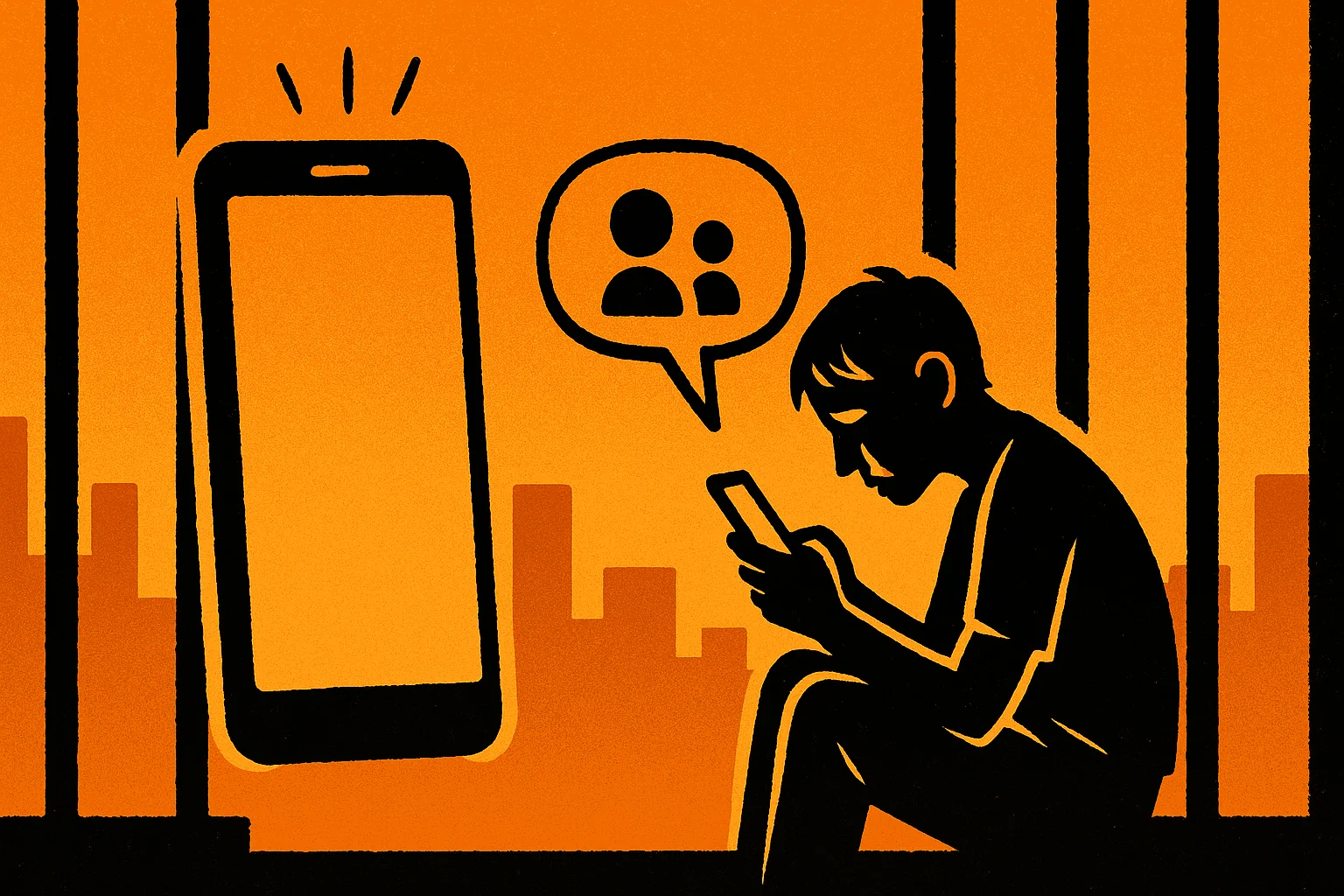In a world where screens seem to be closer to us than people, a strange paradox emerges: the more connected we become, the less real connection we have. Loneliness is no longer associated with physical isolation, but a feeling formed amidst the digital noise itself. New data reveals that 16% of adults feel lonely despite their daily online activity - a percentage that reflects a profound social shift that we are living through without even realizing it.
1) Heavy use increases isolation rather than remedies it
The study confirms that platforms like TikTok and Instagram do not alleviate loneliness, but rather are associated with amplifying it. Heavy use increases feelings of sadness and anxiety, and makes individuals more likely to categorize themselves as "lonely people."
The irony is even more pronounced with a 15-year study showing that increased screen time in the 14-24 age group was directly correlated with higher feelings of hopelessness and frequent sadness.
2)Isolation becomes "comfortable"...but psychologically exhausting
With the ability to work, learn, and shop from home, isolation has become an easier option. But this "comfortable isolation" does not come without a price. Constant exposure to notifications and messages creates social fatigue and prevents the brain from getting the natural moments of rest it needs.
Global data indicates that rates of anxiety and depression among young people rise as screen time increases.
3) From real friendships to fickle connections
Technology has expanded the number of people we can connect with, but it has weakened the quality of those relationships.
According to recent data, 18% of adults don't have a single close friend outside of their family - a percentage that has nearly doubled over the past decades.
On the other hand, fleeting and quick connections are on the rise, especially among the most active users on platforms.
4) The Attention Economy: When Our Isolation Turns into Profits
One of the most important points of the study is to reveal the role algorithms play in fostering isolation.
Digital platforms base their profits on our screen time, not our quality of life.
Every second we scroll through content is an opportunity to collect data and sell advertising.
Algorithms push us towards content that evokes emotions-anxiety, comparison, anger-because these emotions keep the user longer.
5) Social comparison: A perfect life... undermines our self-esteem
The online world shows us other people's best moments, and makes them the standard against which we measure our own lives.
The study suggests that reducing social media time by 50% improves body image and self-confidence in young people.
For those who spend more than 5 hours a day on the platforms, 41% rated their mental health as "poor or very poor".
6) Working and studying remotely: higher productivity...less belonging
The shift towards digital work and education has weakened the "weak ties" - the spontaneous encounters that used to build a sense of community.
A study of Microsoft employees shows that fully remote work makes teams more isolated and reduces information flow.
In schools, 45% of high school students said they no longer feel close to their classmates during remote learning.
Conclusion: Technology is not the enemy, it's how it's used that's the issue
The study makes it clear that the issue is not the technology itself, but how it is designed and how we use it.
We need a new balance that puts humans back at the center of the digital experience:
Less communication...more depth.
Conscious use of platforms...rather than being swept away by them.
Digital spaces that encourage real relationships...not hidden isolation.
To view the video and read the full analysis paper, please scroll down.
Modern isolation: Why do we feel lonely when we're always connected?
We live in a world that is connected in every way... but it leaves an empty space within us that can only be filled by humans

Comments